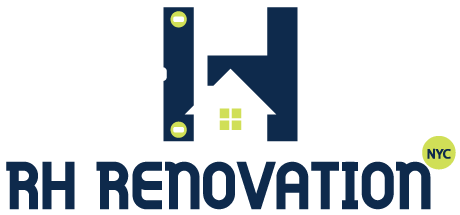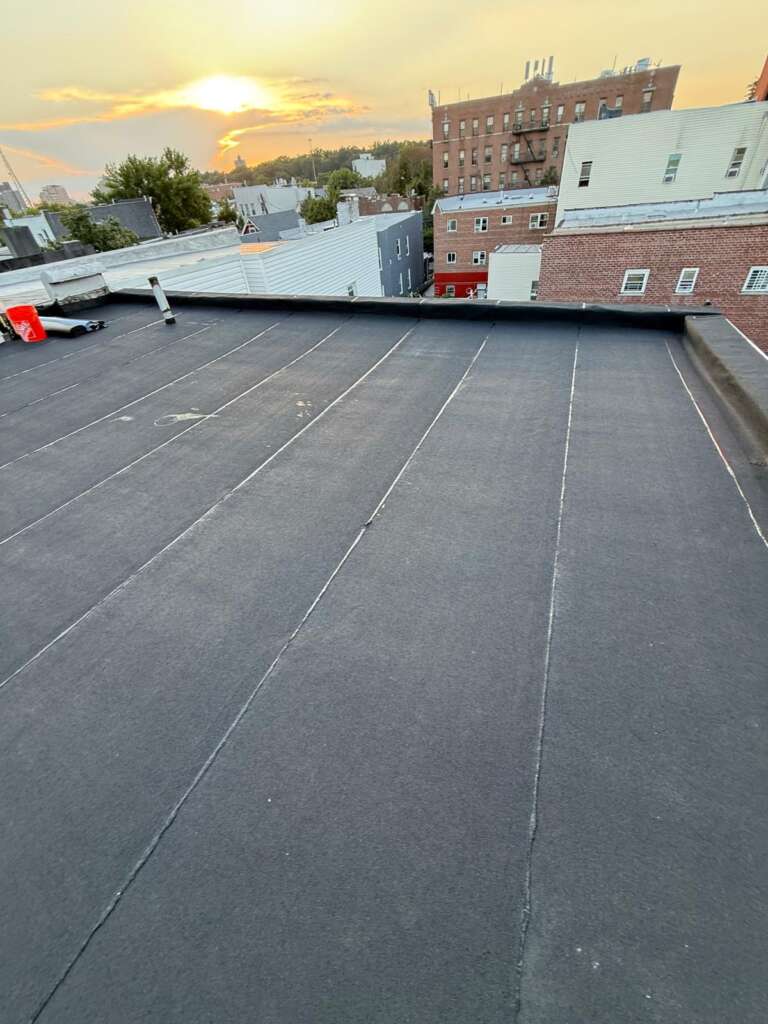A new roof is one of the most important—and expensive—home investments you’ll ever make. But if your roof is leaking, ageing, or has suffered storm damage, waiting isn’t an option. For New York homeowners across NYC, Long Island, and Westchester, you know the average roof replacement cost in NY can range from $8,000 to $15,000 or more, depending on the size and materials.
The good news? You don’t have to drain your savings to protect your most valuable asset. This guide is designed to be your trusted resource, breaking down innovative, affordable roof financing options to help you secure a safe, durable roof today.
Why Roof Financing Makes Smart Financial Sense
Financing your new roof is more than just deferring a payment—it’s a proactive strategy to safeguard your home and finances.
- Avoids Further Damage: A new roof prevents costly leaks and water intrusion that can lead to devastating mould, structural decay, and interior damage. Replacing your roof now avoids much larger future repair bills.
- Improves Energy Efficiency: A new roof with proper ventilation and insulation can significantly lower your energy bills, immediately offsetting some of the financing costs.
- Boosts Home Value: A quality, new roof is a significant selling point that offers one of the best returns on investment for home improvements.
- Preserves Cash Flow: Flexible payment plans let you replace or repair your roof without paying the full cost upfront, keeping your savings liquid for emergencies.
Common Roof Financing Options in New York
Choosing the proper financing method depends on your credit, equity, and the size of your project. Here are the best options for New York homeowners.
1. Roofing Company Financing Plans
Many reputable roofing companies in New York partner with third-party lenders to offer specialised in-house financing programs.
- How it Works: The contractor connects you with a lender offering loan terms specifically for home improvement.
- Pros: Easy, fast application process, quick approval, often includes low- or zero-interest promotional periods (e.g., “12 Months Same-As-Cash”). No collateral is typically required.
- Cons: Repayment terms may be shorter than those of other loans, and higher interest rates may apply after the promotional period.
- Tip: When getting a free estimate, always ask your certified New York contractor about their current financing options for roofing in New York.
2. Home Equity Loans or HELOCs
If you’ve built up equity in your home, you can leverage it for the project.
- Home Equity Loan: A second mortgage that gives you a lump sum of cash with a fixed interest rate and fixed repayment schedule. Ideal for a significant, fixed-cost project, such as a full replacement.
- HELOC (Home Equity Line of Credit): Works like a credit card, allowing you to draw funds as needed over a period (the “draw period”). The interest rate is typically variable. Best for unexpected repairs or for accessing funds over time.
- Pros: Lower interest rates than personal loans, extended repayment periods, and the interest may be tax-deductible (consult your tax advisor).
- Note: Using your home as collateral means that a default could put your property at risk.
3. Home Improvement Loans (Unsecured Personal Loans)
Offered by banks, credit unions, and online lenders, these are a quick way to get funding.
- How it Works: You receive a fixed loan amount, which is paid back over a set term (typically 2 to 7 years) at a fixed interest rate.
- Pros: Funds are often available quickly, and the loan is unsecured, meaning you do not use your home as collateral. Excellent for homeowners with good to excellent credit.
- Cons: Interest rates are usually higher than those for equity-based loans.
4. FHA Title I Home Improvement Loans
This is an excellent option for homeowners with limited equity or who are unable to qualify for a traditional home equity loan.
- How it Works: A federally insured program that protects approved lenders against loss, making them more willing to lend to borrowers for home improvements like a new roof.
- Pros: Can be used for structural and livability repairs. Loans up to $25,000 for a single-family home.
- Cons: Must be used on improvements that protect or improve the basic livability or utility of the property.
5. Insurance Coverage
If your roof damage was caused by a specific event like a major storm, fire, or hail, your homeowner’s insurance policy may cover some or all of the costs.
- Steps to Follow:
- Schedule a professional roof inspection immediately to document the damage.
- File a detailed claim with your insurer, including photos and the inspection report.
- Confirm the approved amount before signing a contract with your roofer.
6. Credit Cards or 0% APR Promotions
For small repairs or minor damage, a credit card might be a viable option, especially one with an introductory 0% APR offer.
- Best for: Small roof repair financing in NYC or minimal cosmetic fixes, generally not recommended for a complete replacement due to the high interest rates that kick in after the promotional period ends.
Factors That Affect Your Roof Financing in NY
Keep these New York-specific factors in mind when planning your project:
| Factor | NY Impact |
| Credit Score & Income | Directly impacts the interest rate and loan amount you qualify for with personal and contractor loans. |
| Project Size & Material | The scale of the job influences the total cost and therefore the loan size you need. High-end materials like slate or metal will increase the cost. |
| Location | Homeowners in high-cost areas like NYC, Long Island, and Westchester may face higher costs for labor, permits, and inspections. |
| Property Type | Is it a primary residence or a rental property? This can affect which financing programs you qualify for. |
Tips for Choosing Your Best Financing Option
- Compare the Total Cost: Don’t just look at the monthly payment. Compare the total interest paid over the life of the loan.
- Scrutinise the Fine Print: Avoid lenders that charge hidden fees, such as origination or prepayment penalties.
- Choose a Licensed Contractor: Ensure your roofer is a reputable, licensed, and insured New York professional. A trusted contractor can often guide you to better financing plans.
- Inquire About Warranties: Some roofing company financing plans offer extended warranties or better rates when paired with specific, quality materials.
When It’s Time to Act on a New Roof
Delaying a necessary roof replacement will only increase your future expenses. It’s time to explore your new roof financing options in New York if you notice:
- Frequent leaks or water stains inside your home.
- Missing, cracked, or severely curling shingles.
- Visible sagging or drooping in the roof deck.
- Granules from asphalt shingles are accumulating in your gutters.
- Your roof is over 20 years old and nearing the end of its life.
Conclusion & Call-to-Action
Financing a new roof in NY is easier and more accessible than many homeowners realise. With a variety of great options—from contractor programs and equity loans to federal assistance like FHA Title I—you can get the protection your home needs now.
Don’t let the initial cost delay putting your home at risk. Contact a certified New York roofing expert today to explore your best financing options, get a transparent breakdown of your costs, and secure a free, no-obligation roof estimate.



